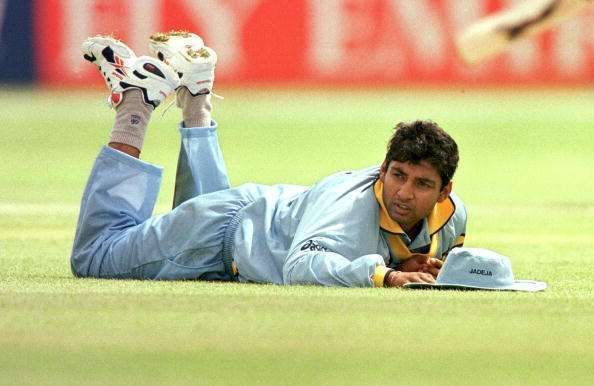Match fixing occurs when a match is played to a completely or partially predetermined result, thus violating the rules of the game. In particular, players have been approached by bookmakers and bribed to throw matches or aspects of matches (such as the toss), or provide other essential information.
Fixing may include both Spot Fixing or Match Fixing. The result of the match is predetermined in Match Fixing whereas a certain event or a certain portion of a match is predetermined in Spot Fixing.
Cricket is called a Gentleman’s Game but there have been instances when players were found guilty of being involved in fixing one way or the other.
Here is the list of 5 Indian international cricketers who were banned after they were found guilty of fixing.
Sreesanth
Sreesanth is a former Indian cricketer, who played all forms of the game. He was a right-arm fast-medium-pace bowler and a right-handed tail-ender batsman. In first class cricket, he played for Kerala and in the Indian Premier League, he played for Rajasthan Royals. He is also the first Kerala Ranji player to have played Twenty20 cricket for India.
On 16 May 2013, the Delhi police arrested Sreesanth and two of his Rajasthan Royals teammates, Ajit Chandila and Ankeet Chavan from Mumbai, on charges of spot-fixing during IPL 6.
On 17 May 2013, Sreesanth confessed to spot-fixing, according to the police. However, Sreesanth has always maintained that he is innocent and that he was forced to sign confession statements.
Ajay Jadega
Ajay Jadeja is a former Indian cricketer, who had been a regular member in the Indian cricket team between 1992 and 2000.
Jadeja’s cricketing achievements were later overshadowed by a 5-year ban for match-fixing. The ban was later quashed by the Delhi High Court 27 January 2003, making Jadeja eligible to play domestic and international cricket. Jadeja had approached the Delhi High Court 2 February 2001, challenging the BCCI’s order of imposing the five-year ban on the basis of the K. Madhavan Committee recommendations.
In 2015, Jadeja was appointed as the main coach for the Delhi cricket team but he resigned from the post. Jadeja is currently a cricket commentator.
Mohammad Azharuddin
Mohammad Azharuddin is an Indian politician and former cricketer. He was renowned as an elegant middle-order batsman and captained India in 47 Tests during the 1990s. His international playing career came to a controversial end when he was implicated in the infamous match-fixing scandal in 2000 and subsequently banned by the BCCI for life.
On 8 November 2012, the Andhra Pradesh High Court lifted the ban describing it as “unsustainable”. But by then he was 49-years-old and too old to get back on the pitch. In 2009, Azharuddin was elected as a member of the Parliament from Moradabad constituency on an Indian National Congress party ticket.
Ajay Sharma
Ajay Sharma was a prolific run-maker in first-class cricket, mainly for Delhi, scoring over 10,000 runs at the high average of 67.46. Given a minimum qualification of 50 innings, only three players (Sir Donald Bradman, Vijay Merchant and George Headley) have bettered this average in first-class cricket.
In 2000, his career ended when he received a life ban from cricket after he was implicated in a match-fixing scandal.
In September 2014, Sharma was cleared from all charges related to match-fixing by Delhi district court and has since asked the BCCI to allow him to take part in the Board’s activities and those of its Associates.
Manoj Prabhakar
Manoj Prabhakar was a right-arm medium-pace bowler and a lower-order batsman who also opened the innings sometimes for the Indian cricket team until his retirement in 1996.
In 1999, Prabhakar participated in Tehelka’s expose of match-fixing, but was himself charged of involvement and subsequently banned by the BCCI from playing cricket. He was dismissed from his coaching role with the Delhi cricket team in 2011 after he publicly criticized the players and selectors.
Agencies

